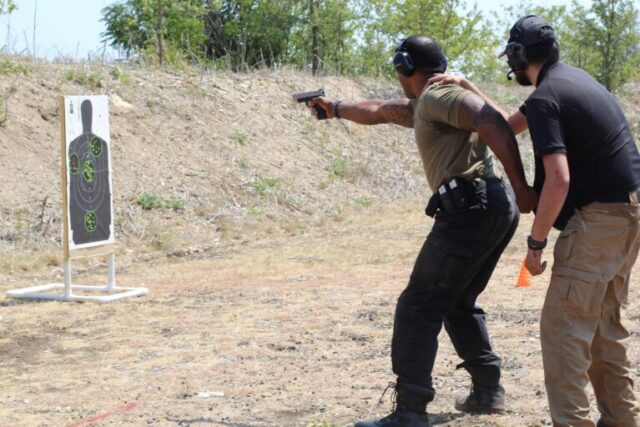In an era where security threats are increasingly sophisticated and unpredictable, the demand for adept leadership within the security field has never been more critical. Developing leadership skills specific to this sector is not just beneficial; it is essential for maintaining safety and operational integrity.
A structured approach can pave the way for aspiring leaders to navigate the complexities of security management, fostering skills that encompass strategic thinking, crisis resolution, and team cohesion. This article delves into effective methods for cultivating these essential skills, offering insights into how professionals can evolve from being mere participants in the security landscape to proactive leaders who anticipate challenges and inspire confidence in their teams.
As we explore this dynamic process, we will uncover the multifaceted dimensions of leadership that can transform security practices and enhance overall resilience in an ever-changing world.
Core Competencies for Security Leadership

Core competencies for security leadership encompass a diverse array of skills and attributes that enable professionals to navigate the complexities of the security landscape effectively. At the heart of these competencies lies strategic vision: the ability to foresee potential threats and develop proactive measures to mitigate risks.
Equally important is strong communication—leaders must articulate strategies clearly to diverse stakeholders, fostering a culture of awareness and collaboration. Crisis management skills stand out as well; in times of uncertainty, the capacity to remain composed and make critical decisions can be the difference between chaos and order.
Furthermore, an understanding of technological advancements and their implications for security practices is essential in an ever-evolving environment. Finally, empathy and ethical judgment underpin successful leadership, nurturing trust within teams and ensuring adherence to the highest standards of integrity.
In this dynamic field, these competencies not only define effective leaders but also contribute significantly to the overall resilience of their organizations.
Assessing Your Current Leadership Skills

Assessing your current leadership skills is an essential first step in the journey toward becoming an effective leader in the security field. Begin by reflecting on your past experiences: What challenges have you faced, and how did you respond? Were you able to inspire and motivate your team under pressure? Collect feedback from your peers, supervisors, and subordinates; their insights can reveal blind spots in your leadership style.
Consider utilizing tools such as self-assessments or 360-degree feedback instruments to gain a clearer picture of your strengths and areas for growth. Remember, truly effective leaders are not only capable of self-evaluation but are also open to continuous learning and adaptation.
So, take a moment to analyze your decision-making processes, communication skills, and emotional intelligence, as these are often the cornerstones of good leadership. Embrace this process of evaluation as an opportunity to lay a robust foundation for the development of your leadership capabilities.
Building a Positive Organizational Culture

Building a positive organizational culture within the security field is not merely an enhancement of existing structures; it is a foundational shift that empowers individuals and strengthens teams. A culture that celebrates collaboration encourages open dialogue, where feedback is not just welcomed but actively sought.
Imagine a scenario where every security personnel feels valued, fostering a sense of belonging that transcends job titles. Here, leaders emerge organically, driven by a collective vision of safety and integrity.
Moreover, recognizing achievements—both big and small—can inject a palpable energy into the workplace, igniting passion and dedication among team members. In this dynamic environment, challenges are approached as shared opportunities for growth, fostering resilience and adaptability.
Ultimately, a positive organizational culture not only enhances morale but also solidifies the mission of security leadership: to protect and serve with unwavering commitment and teamwork.
Conclusion
In conclusion, developing leadership skills in the security field is not only essential for personal growth but also vital for fostering a culture of safety and professionalism within organizations. By adopting a structured approach that emphasizes continuous learning, mentorship, and hands-on experience, aspiring leaders can effectively navigate the complex challenges of the security landscape.
Institutions like Pacific West Academy exemplify the commitment to equipping individuals with the knowledge and skills necessary to lead with confidence and integrity. As the security sector evolves, investing in strong leadership will ensure that we not only meet current demands but also shape the future of security excellence.




